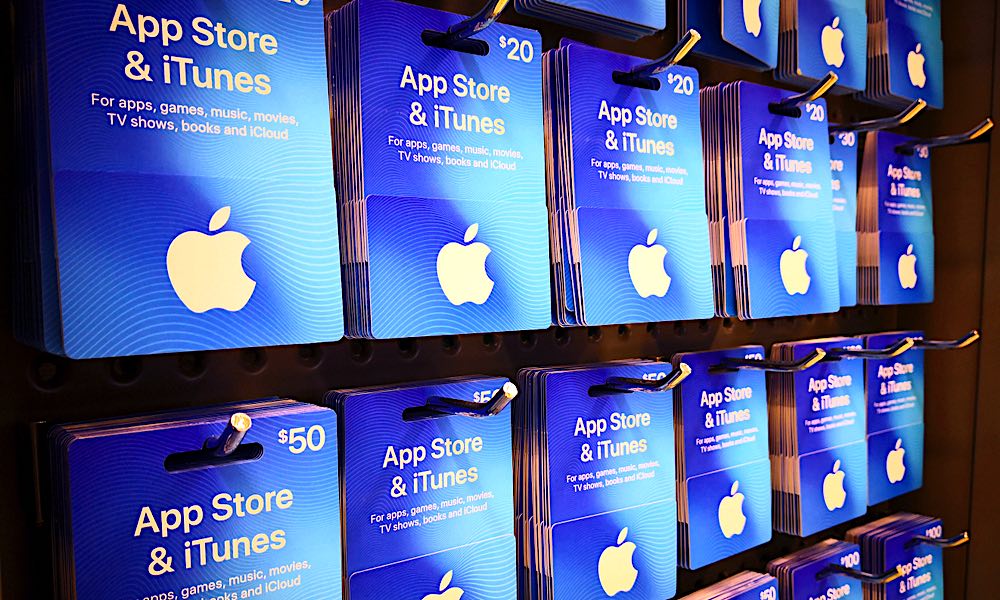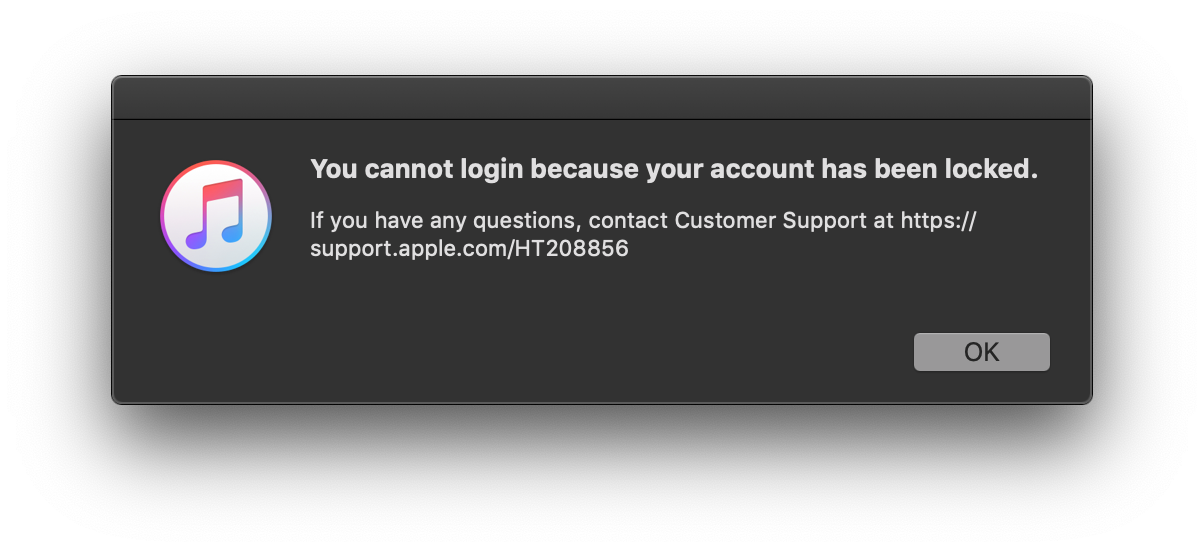How Discount iTunes Gift Cards Could Lock You out of Your iTunes Account
 Credit: TY Lim / Shutterstock
Credit: TY Lim / Shutterstock
Toggle Dark Mode
There’s an old saying that if a deal seems too good to be true, then it probably is. However, in today’s modern digital economy, where the power brokers of big technology wield an unusual level of control over how we use our devices and access our data, some deals can come with even more serious consequences than just lost money.
This is what Luke Kurtis of Quartz discovered when he found himself locked on the outside of Apple’s walled garden after unknowingly purchasing a stolen iTunes gift card online.
Discount Gift Cards
As Kurtis notes, he regularly purchases iTunes gift cards rather than linking his account to his credit or debit card — something that many users do to help manage their spending on the platform. Further, it’s often possible to save money by finding iTunes gift at discount prices, which many legitimate retailers and popular discount websites offer from time to time.
In Kurtis’ case, he purchased an iTunes gift card from a “popular discount website” and successfully loaded it into his iTunes account without any difficulties — something he’s been doing since his first iTunes purchase 14 years ago — and was able to use the balance to purchase a few songs and a movie.
Locked Out
A week later, however, Kurtis was surprised by a new message from iTunes on his computer that most users hopefully never see — “You cannot login because your account has been locked” — directing him to contact Customer Support as the only possible resolution to the issue.
After searching for help online, Kurtis called Apple Support and was surprised to be immediately transferred to a “senior representative” — an unusual move — who informed him that his account had been locked because he had used a fraudulent gift card.
At first, the story seemed like it would have a quick and happy ending. Kurtis explained how he had obtained the card, which he thought had been a legit purchase, and offered to provide proof of the purchase. The agent told him that wasn’t necessary as she could tell from his profile that he was a “dedicated customer” and had simply been the victim of a scam. The Apple rep said she’d escalate it to Apple’s internal security team who she said should re-enable everything within 24 hours, but instructed him to call back if that didn’t happen.
Into the Abyss
Sadly, as Kurtis notes, that didn’t happen. After hearing nothing further from Apple and finding his account still locked 24 hours later, he was unable to get back in touch with the original agent, even after emailing her directly. So he called back into the main support line, and was once again shuffled over to another “senior agent” right away.
Unfortunately, this new agent was considerably less helpful, telling Kurtis that his account had been “permanently disabled” with absolutely no recourse, no appeal, and no escalation path. When Kurtis asked why, he was bluntly told to “See the terms and conditions.”
In essence, Apple was saying “You’re guilty because we say so,” basically playing judge, jury, and executioner and offering no transparency and no ability to challenge or appeal the decision.
I started to realize just how far-reaching the effects of Apple disabling my account were.
Since this was a complete lockout of Kurtis’ iTunes Store and App Store accounts (although his iCloud account was seemingly unaffected), this meant that he not only couldn’t view his purchased media content or access his Apple Music subscription, but he also suddenly found out that he couldn’t even update his iOS apps. In one case, a required update to the JetBlue app couldn’t be installed, preventing him from accessing his boarding pass for an upcoming flight. He also couldn’t stream any music from HomePod — even music from his own collection.
“See the terms and conditions”
Kurtis understandably wasn’t about to give up on 15 years of purchases, not to mention $15,000 of investment in Apple apps and media, so he continued to reach out to Apple support. On a third call, he received another agent who was supportive and recognized him as a loyal customer, and put in an appeal to have his account reviewed again, but found it once more denied by Apple’s “Internal Security Team.”
A fourth call was handled by yet another sympathetic agent, who “went above and beyond” in requesting documentation and going to bat in making a case for Kurtis to the security group, but found the request not only denied again, but was reportedly ordered by Apple’s Security Team to “stop pursuing the case.”
In the midst of this, the only reason Kurtis was given for his complete and permanent ban from the iTunes Store and App Store was to “see the terms and conditions” — a response akin to being arrested and charged with “violating the criminal code” without actually being told which law you’ve broken.
A Final Appeal to the Top
After dealing with the intransigence of Apple’s “internal security team,” Kurtis decided he was out of options and felt that he had no choice but to appeal his case directly to Apple CEO Tim Cook, who sometimes responds to customer e-mails — directly on rare occasions, but more frequently through his “executive relations” team. Kurtis also asked for help through his Apple sales rep for Quartz, although he was reluctant to call on a professional relationship for a personal issue.
While Kurtis never heard anything back directly from Cook, he did find his account re-enabled soon after, and got a response from somebody within Apple who explained to him that he had inadvertently purchased a gift card that had been part of a stolen delivery going to legitimate retailers. Apple also offered him a few free months of Apple Music as an apology and compensation for his trouble.
A Cautionary Tale
While Kurtis’ story ultimately had a happy ending, it’s a bit concerning how much effort it took to get a final resolution, and it’s questionable whether somebody without his long customer history with Apple and inside contacts would have had as much success.
In fact, it’s even more worrisome that somebody with what is effectively “VIP” customer status would still find themselves faced with having to appeal to the CEO and make use of other professional contacts. While three out of four of Apple’s front-line support representatives seem to have recognized that Kurtis was a valuable and loyal customer, Apple’s internal security team obviously showed no concern for this at all.
Of course, the best way to avoid being caught up in a mess like this is to be very careful where you purchase iTunes Gift Cards from. While discounts being offered by legitimate retailers should be safe, it’s virtually impossible to know the source of gift cards purchased from many discount retailer sites, especially those who allow smaller companies and individuals to offer their own inventory. It’s clear that Apple’s internal security team considers the use of even a single stolen gift card to be tantamount to committing an act of fraud and violating some unspecified terms and conditions of using the iTunes Store, and with the amount of power that Apple wields over your devices, you could be taking a bigger risk than you may realize just for the sake of saving a few bucks.







